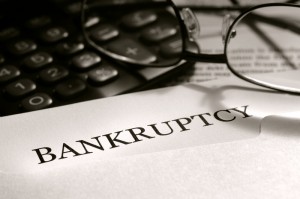 In most circumstances it is permitted to sell property before filing bankruptcy. However, the sale of property before filing bankruptcy must be disclosed to the bankruptcy trustee in the statements filed with the court, and these transactions are scrutinized to determine whether there is evidence of fraud. When fraud results from the sale of property before filing bankruptcy it is called a fraudulent conveyance.
In most circumstances it is permitted to sell property before filing bankruptcy. However, the sale of property before filing bankruptcy must be disclosed to the bankruptcy trustee in the statements filed with the court, and these transactions are scrutinized to determine whether there is evidence of fraud. When fraud results from the sale of property before filing bankruptcy it is called a fraudulent conveyance.
Whether or not a transfer of property is a fraudulent conveyance depends on the debtor’s intent at the time of the sale. Does it appear that the debtor transferred the property in order to hinder, delay, or defraud creditors? Intent is usually inferred from the circumstances surrounding the transaction using the “Badges of Fraud.”
The Badges of Fraud refers to facts that imply fraudulent intent and include, but are not limited to:
- The transfer of property was made to an insider, such as a family member, friend, or business partner
- The debtor removed or concealed assets
- The transfer occurred shortly before or shortly after a substantial debt was incurred
- The debtor was insolvent or became insolvent shortly after the transfer was made or the obligation was incurred
- The transfer was of substantially all of the debtor’s assets
- The debtor retained possession or control of the property transferred after the transfer
- Before the transfer was made or obligation was incurred, the debtor had been sued or threatened with suit
- The debtor absconded after making the transfer
Basically, if the transfer of property was made for the purpose of keeping the property from the debtor’s creditors, then it is most likely a fraudulent conveyance.
If a bankruptcy trustee determines that a fraudulent conveyance occurred, then two things may happen. First, the trustee may seek to avoid the transfer, so that the property can be seized, liquidated, and the proceeds paid to the creditors. Second, the trustee may object to the debtor receiving a discharge. This means that once the case is closed the debtor may continue to be liable for his debts. As a general rule, it is a very good idea to speak to a bankruptcy attorney before disposing of assets if considering filing bankruptcy.